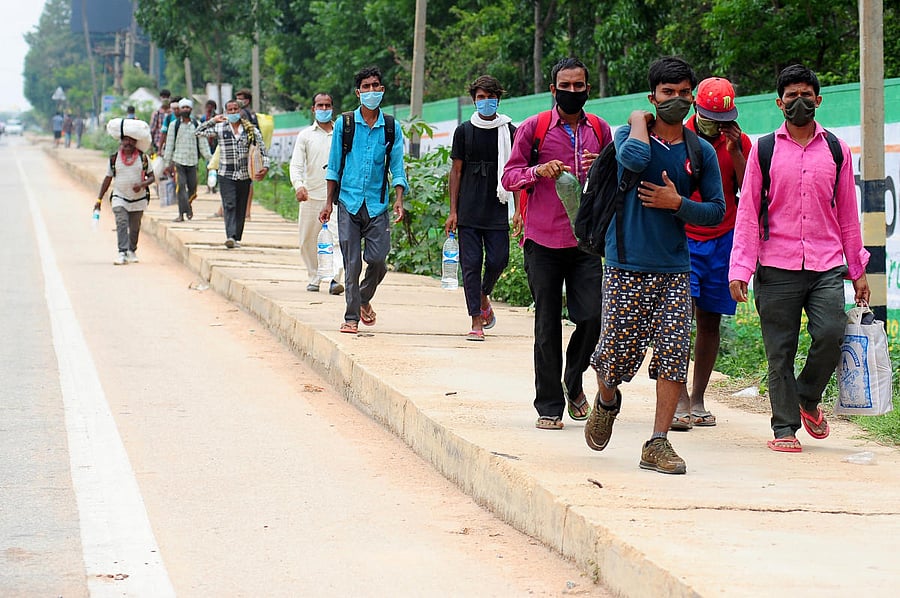
There is a reason why Karnataka saw a 47% increase in migrant workers since 2011. They came here in search of employment opportunities.
However, the government’s decision to cancel trains meant to ferry them back to their native states and the subsequent U-turn has thrown thousands of lives out of gear.
According to data, Karnataka is home to 65.45 lakh migrant labourers, most of whom are blue-collared workers severely hit by the lockdown. Their number has grown by over 21 lakh since 2011, as a large number of them flocked the southern states looking for jobs.
‘Not aware of transport’
Even as many migrant labourers struggled to return home, trade unions allege that some firms were forcefully retaining employees and preventing them from leaving, while many were still kept in the dark about any transport arrangements made.
According to data compiled by the Labour Department, the population of migrant labourers was 44.3 lakh in 2011, against the state’s population of 6.1 crore.
As of 2019, while the state’s population increased to 6.83 crore, the population of migrant labourers grew to 65.45 lakh. A demand to transport even 20% of them - around 13 lakh labourers - is expected to cause a logistical nightmare for authorities.
Social activist Vinay Sreenivasa told DH that a majority of the migrant labourers were blue-collar workers, who were among the worst-hit during the lockdown.
“Many of them are still awaiting salaries for the month of March. Many of them did not have access to ration kits distributed by the government and civic groups,” he said.
Despite the government’s decision to resume train services, he said that migrant labourers were already moving to their native states from different parts of the state in their hundreds.
S Varalakshmi, state president, Centre of India Trade Unions, said the government did not create awareness among migrant labourers on train services to different states.
“There is a conscious effort to prevent their move over fears of economic activity coming to a standstill,” she said, adding that efforts are being made by the government to convince the labourers to stay back.
She alleged that a few firms have used force to retain employees and prevent them from travelling back, alleging that it was ‘bonded labour’.

